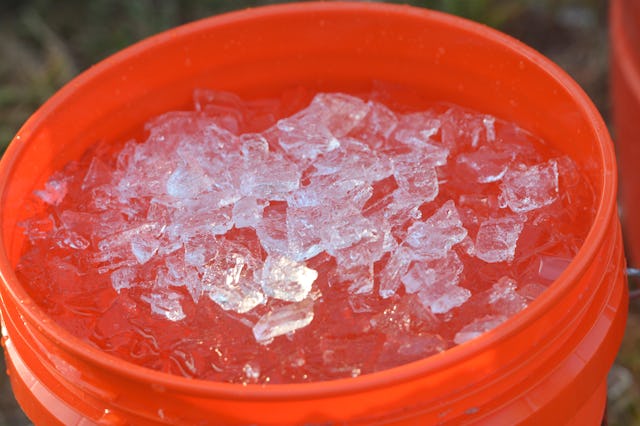Why Are Teens Doing The Ice Bucket Challenge Again?
The social media awareness move is taking over feeds again — and your kids are tagging their friends.

There are some social media trends that will live on forever in our memories (like Facebook poking), but only a few of them brought about real change. For many of us, seeing our Facebook feeds flooded with Ice Bucket Challenge videos back in 2014 was more than just another fun social media thing — it did bring a lot of education and understanding. At the time, the Ice Bucket Challenge was created to raise awareness about ALS, and according to The ALS Association, it really, truly did — the organization shares that 220 million dollars was raised because of the altruistic trend.
And now the Ice Bucket Challenge is back. For teens.
This time, however, the Ice Bucket Challenge seems to be a call for mental health awareness. On March 31, the University of South Carolina’s Mental Illness Needs Discussion Club posted a video on Instagram sharing the Ice Bucket Challenge, nominating participants to join in and let others know that they can “speak their mind” when it comes to mental health. Like a rallying cry for speaking out when you need help, and also letting others know you’re a safe space for them to share.
It’s spread pretty quickly, with even the anchors of the Today Show getting in on the challenge. And while some skeptics have wondered how it raises awareness, it works exactly like it did for raising awareness about ALS. People are talking about it, people are sharing their own videos and referencing their struggles with mental health, and in a world where teens can feel lonely and out of place, it’s pretty lovely that this has resonated with that age group so much. According to the CDC, from 2021 to 2022, 17% of adolescents ages 12 to 17 reported feeling depressed, with 40% of high school students in 2023 reporting “persistent feelings of sadness or hopelessness in the past year” and 20% of high school students in 2023 sharing that they have seriously considered attempting suicide in the past year. That is a staggering amount of teens in distress, and if the Ice Bucket Challenge helps them get help, why not? Donations have also been flooding in, with the USC MIND Club surpassing $100,000 in donations. (A club, by the way, created after one college student lost two friends to suicide.)
There have also been some critiques that using the Ice Bucket Challenge in this way takes away from the ALS awareness campaign that started over a decade ago. NBC reported that when they reached out to The ALS Association, the organization responded, “We’re thrilled to see the spirit of the ALS Ice Bucket Challenge live on in new forms of activism.”
Taking the challenge and using it to raise awareness of a different need doesn’t take away from all the incredible work it has done (and continues to do) for ALS. While people might be speaking up about mental health as they perform the challenge, it will always be connected to ALS, so it feels like it’s pulling double duty and raising awareness right now for two incredibly worthy causes.
And honestly, anything that will get our teens talking to each other — and listening to each other — about mental health struggles is a definite win.